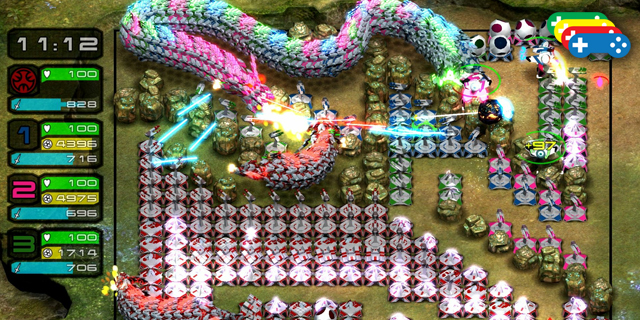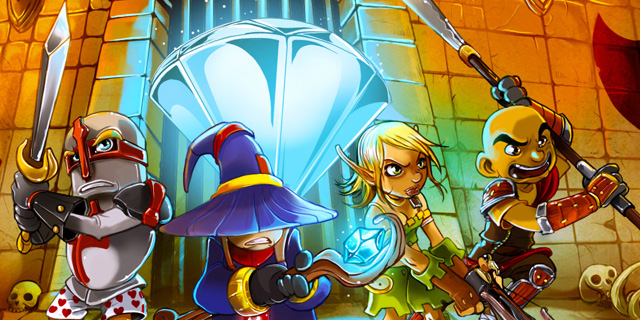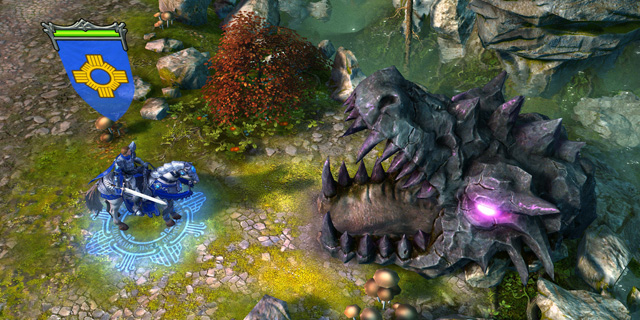
This is the debut installment of Multitap, writer Graham Russell’s new column about traditional multiplayer and co-op gaming.
There are lots of games out there that let you jump in with your friends and play around. Those can be a heck of a lot of fun. If you’re looking for something a bit more cerebral, though, nothing’s better than a co-op game with some planning and strategy.
You know you’ve found a winner when you’re standing up at your TV, pointing out and circling things like a madman. Case in point: Comet Crash. The PSN-exclusive tower-combat game has three-player local support in the campaign, and before each level, you can pause, view the map, and talk out tactics. “You start snaking the path near our base, and you start grabbing all the resources. I’ll focus on containing the flying enemies.” Rather than just rushing off and trying to increase your numbers or decrease others’ numbers until some game end, there’s that cool element of making a plan and putting it into action.
When the plan fails (and it will), you learn from your mistakes, and as a group you can refine your tactics. Comet Crash‘s delicate balance comes from knowing when to pull the trigger. Sending 500 guys at the enemy base? None of them will get through. 600? You waited too long, the enemy’s units are on their way and you can’t scramble to stop them all. It’s when you work together, hold on until the very last minute and scrap all your assets to send the magic 565 their way that all that coordination and monitoring pays off.

That’s not the only game, of course. Last year’s Dungeon Defenders certainly has this element front-and-center. This one’s strategy feels a lot like basketball. The game’s really designed for four at once, so you really need to play a good zone defense to keep everyone covered. (And sometimes, in the case of the big enemies, you need to switch to a box-and-one.) When a side’s particularly strong, you shift over and defend more. There’s a bit of grinding that can be done to avoid some of the razor’s-edge strategy, but why would you? The best way to play this game is to sit four people down, make new characters and hope your ragtag bunch beats the odds with unparalleled precision.
The longer the game, the more chance you have for specialization. Every few months, my friends like to get together and play through a Heroes of Might & Magic map cooperatively. By now, we have three fairly-well-defined roles: the front-line force, taking on the enemy by pushing back territory; the homeland defender, staying back and readying for enemy strike force; and the special ops team, making a break for poorly-defended cities and disrupting key resources.

With games that can last a whole weekend, though, these roles rotate often. After all, that special ops team can get beaten up and need to retreat and recoup at home. That front line could see an opportunity to make a strike behind the line and need someone to cover. And, if you’re feeling particularly risky, you could pull the goalie and send all three forces straight into battle.
It’s these decisions that make the games great. The mechanics alone in these games? They’re not that stunning. But they’re well-defined after years of iteration, and they’re not as boring when they’re wrapped around interesting decisions all the time.



















